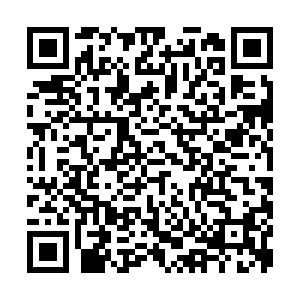Journal Editors' Panel @ NAAEE2024 Research Symposium

Visit the 2024 NAAEE Research Symposium Networking and Featured Sessions webpage to learn more!
Each year, the NAAEE Research Symposium hosts a journal editors' panel with representatives from the field's core journals and affiliate outlets publishing work concerning environmental and sustainability education.
What to expect?
Typically, panelists introduce the journal they represent.
There's also a spotlight on a core and/or related journal.
And then there's a discussion theme, and question and answer.
On behalf of the panelists, I warmly invite you to consider joining the panel in person if you are at the research symposium.

You can also use the QR code to post a question in advance for consideration by the panel.
In the 2024 panel, the following journals will be represented: Applied Environmental Education & Communication, Children, Youth and Environments, Environmental Education Research, International Journal of Early Childhood Environmental Education, Journal of Environmental Studies and Sciences, and The Journal of Environmental Education.
Notes and Bibliography Overviews of a range of these and related journals have been compiled in a recent bibliography of the field. Access it at:
Reid, A., & Ardoin, N. M. (2024). Environmental education. https://doi.org/10.1093/OBO/9780199756810-0312.
Find extracts below.
PS Feel free to add to this listing by commenting on this blog post.
Applied Environmental Education & Communication. 2002–.
This multidisciplinary journal, geared toward academics and practitioners, publishes four issues per year. The journal presents developments in the fields of environmental social marketing, environmental journalism, EE, sustainability education, environmental interpretation, and environmental health communication. It also examines environmental initiatives in governmental and corporate public awareness, public relations and outreach, behavioral science, interpersonal and mass media, and worldwide education and communication campaigns.
Australian Journal of Environmental Education. 1984–.
This quarterly journal was established, and remains owned, by the Australian Association for Environmental Education. It aims to provide significant, innovative contributions to research and practice that enhance and expand the field of EE. An international, peer-reviewed journal, it also aspires to inform and stimulate debate on how educational strategies might support environmental and social justice in Australia and elsewhere, including First Nations justice in EE.
Canadian Journal of Environmental Education. 1996–.
This peer-reviewed journal usually publishes one issue per year. It describes itself as a “thoughtful forum” to advance Canadian-focused thought and practice in EE and/or issues and practices of international importance to this field of study. Like many EE journals, its intended audience includes researchers, scholars, practitioners, and postsecondary students. Articles represent a range of common and distinctive interests, such as “wild pedagogies,” “Land Education,” and water-based ways of knowing—such as for “blue EE.”
Environmental Education Research. 1995–.
This monthly academic journal publishes international peer-reviewed research and scholarship on all aspects of EE. Research articles are sourced from around the world, illustrating diverse schools of thought and practice. The journal’s primary audiences are those working in or with the broad fields of education and educational research, environmental studies, and relevant interdisciplinary or subdisciplinary aspects. Its mission is to advance research-based and scholarly understandings of EE.
International Journal of Early Childhood Environmental Education. 2013–.
This peer-reviewed, open-access electronic journal publishes three issues per year. It focuses on international scholarly works pertinent to the education of young children (birth to eight years). Typical articles include research-driven investigations of early childhood EE, descriptions of educational approaches and programs, evaluation models, book reviews, and development or interpretation of theoretical perspectives. Implications for policy at the local, state, regional, national, and international levels are also sought from authors.
International Research in Geographical and Environmental Education. 1992–.
This quarterly, international, peer-reviewed journal sets out to promote and disseminate research that offers insights into the integration of a learning area—in this instance, geography—with EE. The journal aims to demonstrate the relevance of research studies to good professional practice, particularly at secondary and higher levels. Given its title, manuscripts are also expected to demonstrate how environmental problems, theories, and solutions relate to specific geographical contexts.
Southern African Journal of Environmental Education. 1984–.
This international, open-access, refereed journal is published annually. It reports on a range of aspects relating to environmental education, ethics, and action in southern Africa and elsewhere, with a strong focus on research-based perspectives. The journal includes papers reflecting the diversity of EE practice in southern Africa, providing a unique forum for the region’s scholars, practitioners, and policymakers to further the academic study and practice of EE.
The Journal of Environmental Education. 1969–.
The field’s oldest journal, it is currently published bimonthly and includes articles on a range of aspects of research, theory, and praxis in environmental and sustainability education, as well as related areas. As with Environmental Education Research, and the Australian, Canadian, and Southern African EE journals more broadly, its editorial board may use special issues to focus attention on specific areas of research and other topics of interest to engage its international readership.
